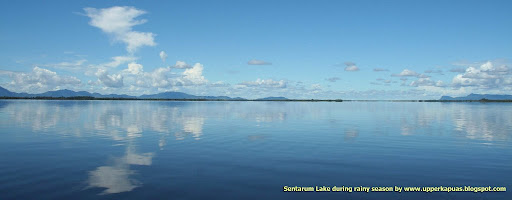 Dayak tribe has one of hereditary customs in running farming terrain. That is shifting cultivation. After one planting period is over, farmers would move to new locations to be built as a farming field. Most of locations are wooded area.
Dayak tribe has one of hereditary customs in running farming terrain. That is shifting cultivation. After one planting period is over, farmers would move to new locations to be built as a farming field. Most of locations are wooded area.Some Dayak farmers notified after many times of shifting sites they would look for new locations which those are former locations of their fields as well. It means, a shifting cultivation has a cycle that the cultivation would return to same spot at a certain time.
Shifting cultivation is still carried out as part of efforts to preserve ancestral traditions. It’s a kind of local wisdom, new location of fields are needed to give point in time for soil to have a break and restore its fertility after a couple of months were absorbed by rice plant (padi).
During the growing season, soil’s nutrient was being soaked up by rice plants so that soil’s fertility is reduced. After the season ended, the farmers left the land. That is the time when soil’s fertility being recovered, among others, through the decay of leaves, wood decay, the activity of worms and other micro organisms. Then the ground began overgrown with grass and trees back to form secondary forest.
It cannot be refuted that the increase of population and the growth of development cause to reduced land area.
Malthus’ theory said population growth’s faster than food production. The theory questions environment’s supporting capacity and environment’s retaining capacity. Environment’s supporting capacity decreases if population growth goes higher.
Malthus' theory can be used to analyze the "prospect" of shifting cultivation in the future. The continuance of it will stand facing on the fact diminishing land. And farmers should be aware of this fact, that shifting cultivation would difficult to do due to land’s availability. Ever since land has been growing reduced farmers should find solution, for instance by permanent cultivation.

It’s not easy to convert inherited habit of shifting cultivation. It needs commitment of farmers and support from local government. Government often blames shifting cultivation as a main cause of forest fire and smokes. Instead of giving solution to farmers, government made prohibition against shifting cultivation.
Most farmers use agricultural knowledge inherited by the family. There’ are few Dayak farmers who have the educational background of agriculture. Hence, they require knowledge, skills and agricultural equipment to be able to process former location to become fertilized and ready to be replanted.







